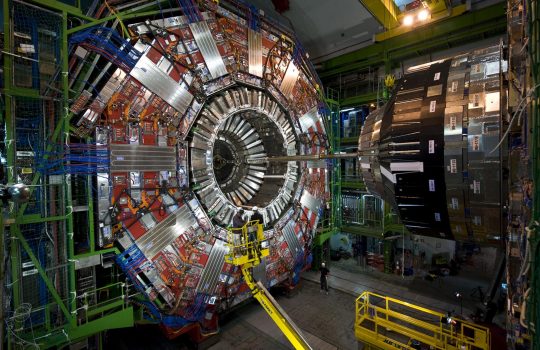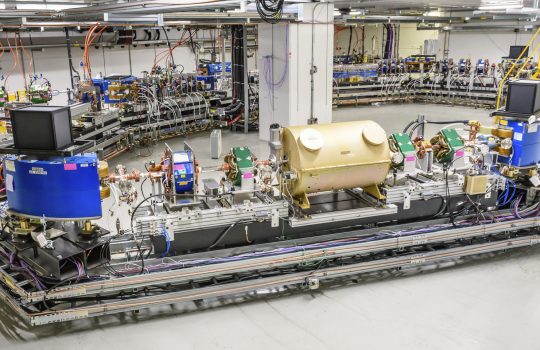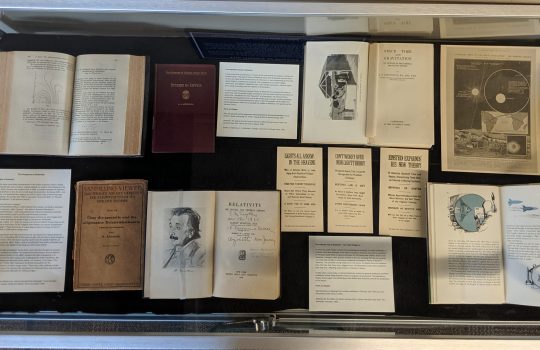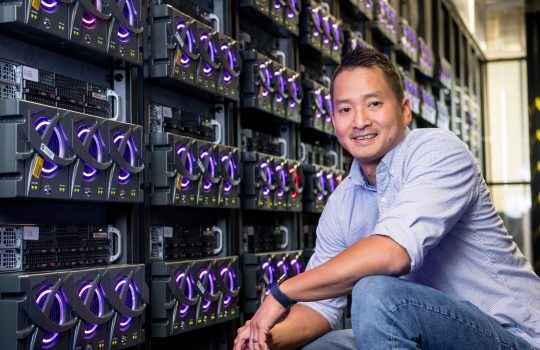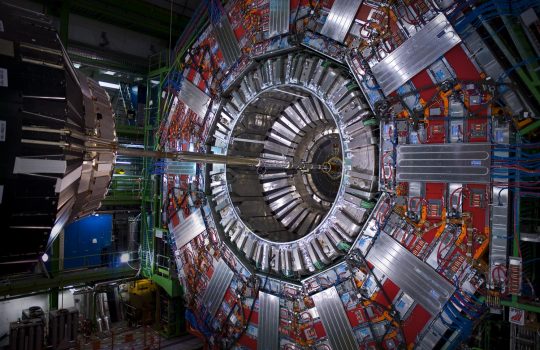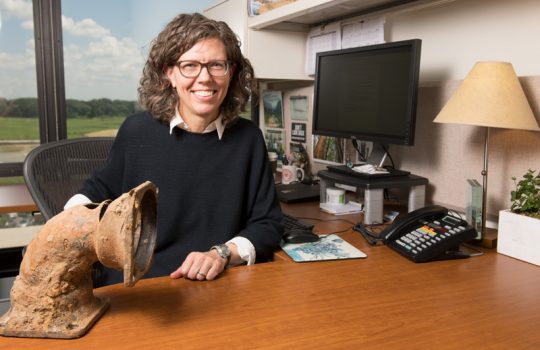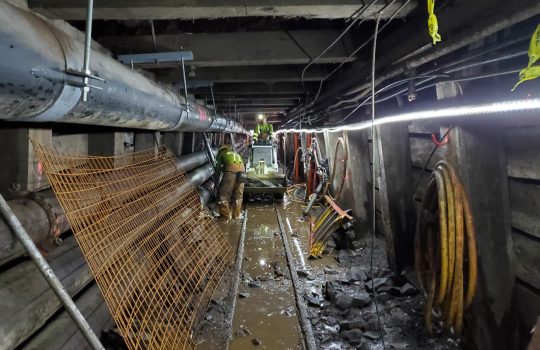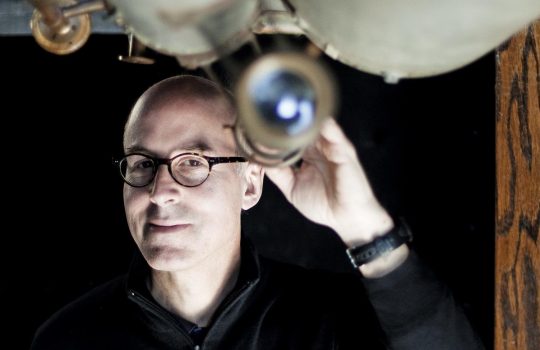A glimpse into the future: accelerated computing for accelerated particles
A new machine learning technology tested by Fermilab scientists and collaborators can spot specific particle signatures among an ocean of LHC data in the blink of an eye, much faster than standard methods. Sophisticated and swift, its performance gives a glimpse into the game-changing role machine learning will play in making future discoveries in particle physics as data sets get bigger and more complex.

